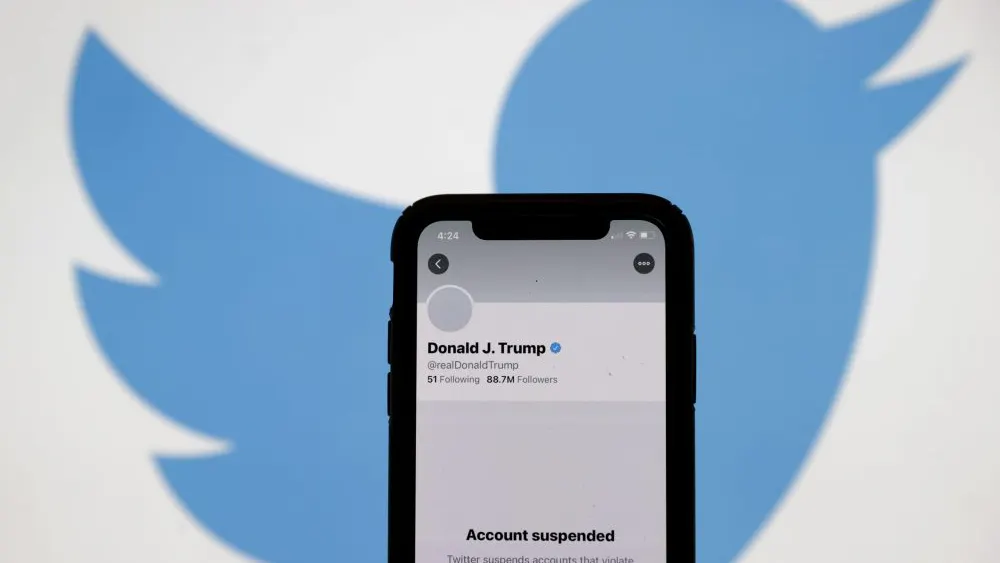One day after Twitter deleted a “controversial tweet” made by the country’s president, Nigeria’s minister of information and culture announced that Twitter was being suspended “indefinitely” in the African nation. Twitter responded by describing the “#OpenInternet” as “an essential human right in society,” prompting accusations of hypocrisy from critics.
“The Federal Government has suspended, indefinitely, the operations of the microblogging and social networking service, Twitter, in Nigeria,” read a statement, ironically posted on Twitter. “The Minister of Information and Culture, Alhaji Lai Mohammed, announced the suspension in a statement issued in Abuja on Friday, citing the persistent use of the platform for activities that are capable of undermining Nigeria’s corporate existence.”
“The Minister said the Federal Government has also directed the National Broadcasting Commission (NBC) to immediately commence the process of licensing all OTT and social media operations in Nigeria,” the statement added. The statement was signed by “Segun Adeyemi,” who is “Special Assistant To The President (Media), Office of the Minister of Information and Culture” in Abuja, Nigeria.
According to The Associated Press, Mohammed “criticized Twitter for deleting the post,” saying, “The mission of Twitter in Nigeria is very suspicious,” arguing “that Twitter had in the past ignored inciting tweets against the Nigerian government.”
In the deleted tweet, Mohammed made a comment about a secessionist movement, vowing to respond to pro-Biafra separatists accused of targeting law enforcement and government buildings “in the language they understand.”
“Many of those misbehaving today are too young to be aware of the destruction and loss of lives that occurred during the Biafra war,” he wrote. “Those of us in the fields for 30 months, who went through the war, will treat them in the language they understand.”
Amnesty International condemned the move. “We call on the Nigerian authorities to immediately reverse the unlawful suspension and other plans to gag the media, repress the civic space, and undermine Nigerians’ human rights,” Amnesty said in a statement.
Meanwhile, the U.S. mission in Nigeria argued against the decision, saying that Nigeria’s constitution protects freedom of expression.
“The Government’s recent #Twitterban undermines Nigerians’ ability to exercise this fundamental freedom and sends a poor message to its citizens, investors and businesses. Banning social media and curbing every citizen’s ability to seek, receive, and impart information undermines fundamental freedoms,” the U.S. mission said in a statement.
Twitter also released a statement, expressing deep concern.
“We are deeply concerned by the blocking of Twitter in Nigeria. Access to the free and #OpenInternet is an essential human right in modern society,” announced the Twitter Public Policy account. “We will work to restore access for all those in Nigeria who rely on Twitter to communicate and connect with the world.”
We are deeply concerned by the blocking of Twitter in Nigeria. Access to the free and #OpenInternet is an essential human right in modern society.
We will work to restore access for all those in Nigeria who rely on Twitter to communicate and connect with the world. #KeepitOn
— Global Government Affairs (@GlobalAffairs) June 5, 2021
Critics of the social media platform quickly pointed out the arguable hypocrisy of Twitter’s condemnation.
“Access to the free & #OpenInternet is an essential human right in modern society… unless you’re Donald Trump. Or reporting on Hunter Biden’s laptop. Or discussing the biology of gender. Or the murderous dictator of Iran. Or a Chinese Communist Party peon lying about COVID,” responded Liz Wheeler.
“I am deeply concerned by the suspending of President Donald Trump on Twitter,” wrote Florida Republican congressional candidate Lavern Spicer. “Access to the free and #OpenInternet is an essential human right in modern society, even if you disagree with their politics.”

.png)
.png)

